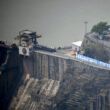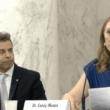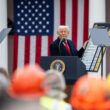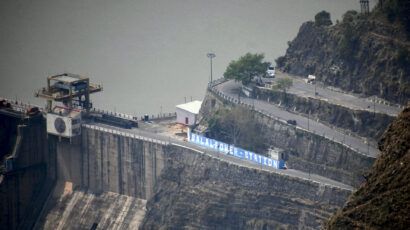Roald Sagdeev A view from the heart of Siberia
October 17, 2012
At the time of the Cuban crisis, I lived in the heart of Siberia, in a newly established science campus called Academgorodok in the vicinity of the city of Novosibirsk, which had a population of about one million people. The first alarm came from official Soviet broadcasts in October, warning about the "blatant and aggressive" threat by the United States to stop our commercial ships from going to brotherly socialist Cuba. But very soon I learned that the Soviet government in its addresses to the domestic public was downplaying the real danger of the emerging situation. From the Voice of America broadcast in its special English program (the Russian-language broadcast was heavily jammed), I picked up a different story that included the grave words of President Kennedy. The atmosphere in the Institute of Nuclear Physics, my workplace, became very tense. We expected the worst. Sometimes I caught myself, as I opened my eyes in the morning, wondering whether I was seeing the morning sun or a distant fireball.
My parents and younger siblings lived in Kazan, on the Volga River, while one of my brothers served in a nearby air-defense regiment, which, I thought, would provide at least part of my family with some protection. Little did I know that he and his unit had been moved to Cuba, carrying their surface-to-air missiles with them. Needless to say, we felt enormous relief at the end of crisis. My Moscow friends told me the story of how Muscovites got the very first indication that the crisis had had a happy ending: Nikita Khrushchev appeared in a VIP box at the Bolshoi Theatre when an American guest tenor was on stage.
Many years later, close to the 25th anniversary of that crisis, I was the director of the Soviet Space Research Institute in Moscow and an advisor to Mikhail Gorbachev on missile defense and science generally. I had the privilege to host Robert McNamara as my institute's guest at a small dinner. Inadvertently, the conversation turned to the days of the Cuban Missile Crisis and the atmosphere inside Kennedy's inner circle. My guest recalled that the available estimate of the strength of the mutual deterrent forces were about 17 to 1, in favor of the United States. Perhaps that ratio was what drove some American proponents of a preemptive attack to suggest it. But McNamara said there was a sobering consideration: Even after the US launched a seemingly successful disarming strike, a single ICBM might have survived somewhere in Russian forests, the commander of which would have pushed the button to retaliate for his perished brothers. The moral of this story is that a minimal deterrent was sufficient to stop wise leaders from making the Cold War into World War III.
Roald Sagdeev
Board of Sponsors
A view from the heart of Siberia













